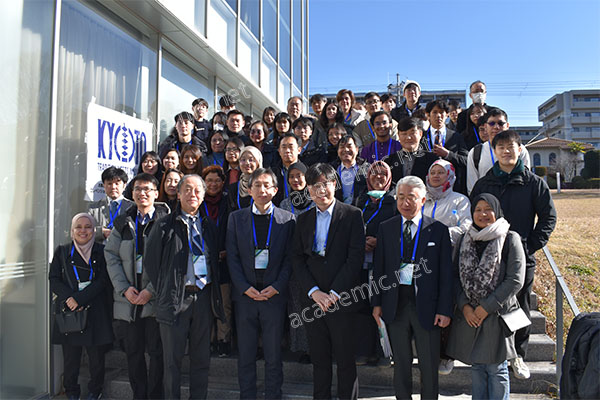Guide to Submitting Papers to EI Indexed Conferences
Submitting papers to EI (Engineering Index) indexed conferences is a significant step for researchers aiming to share their work with a global audience and gain academic recognition. This guide provides a comprehensive overview of the submission process, tips for crafting a compelling paper, and resources for finding the right conference for your research.

EI Compendex is a leading engineering database that indexes top-tier journals, conference proceedings, and technical reports. Conferences included in EI are recognized for their rigorous selection process and high impact in the field of engineering and technology.
Steps to Submit Papers to EI Indexed Conferences
1. Identify Suitable Conferences
Finding the right conference is crucial. Here’s how to identify suitable EI indexed conferences:
- Academic.net: Visit Academic.net for a comprehensive list of upcoming EI indexed conferences across various disciplines.
- Conference Websites: Check the official websites of potential conferences to confirm EI indexing and review their submission guidelines.
- Institutional Resources: Utilize resources from your university or research institution, including faculty recommendations and library databases.
Each conference has specific submission guidelines. Pay attention to:
- Paper Format: Follow the prescribed format, including templates for LaTeX or Word.
- Submission Deadlines: Ensure you are aware of the submission deadlines and any extensions.
- Review Criteria: Understand the criteria used for reviewing submissions to tailor your paper accordingly.
Crafting a high-quality paper involves several key steps:
- Title and Abstract: Write a concise and informative title and abstract that clearly convey the significance of your research.
- Introduction: Provide a clear introduction that outlines the research problem, objectives, and contributions.
- Methodology: Describe your research methods in detail, ensuring reproducibility.
- Results and Discussion: Present your findings clearly and discuss their implications.
- Conclusion: Summarize the main points and suggest future research directions.
- References: Follow the conference’s citation style and ensure all references are accurate and relevant.
Before submitting your paper, use plagiarism detection tools such as Turnitin or iThenticate to ensure your work is original and properly cited.
5. Submit Your Paper
Submission is typically done through the conference’s online submission system. Ensure you:
- Create an Account: Register on the conference’s submission portal.
- Upload Your Paper: Follow the instructions to upload your paper and any supplementary materials.
- Confirm Submission: Double-check your submission for completeness and accuracy, then confirm submission.
After submission, your paper will undergo a peer review process. Be prepared to:
- Respond to Reviewer Comments: Address any feedback or required revisions promptly and thoroughly.
- Revise and Resubmit: If necessary, revise your paper according to the reviewers’ suggestions and resubmit it by the given deadline.
If your paper is accepted, prepare to present your work:
- Presentation Materials: Create slides or other presentation materials that effectively communicate your research.
- Practice Your Presentation: Rehearse your presentation multiple times to ensure clarity and timing.
- Network: Use the conference as an opportunity to network with other researchers and professionals in your field.
Publishing in EI indexed conferences provides several advantages:
- Enhanced Visibility: Your research will be accessible to a global audience of engineers and technologists.
- Academic Credibility: EI indexing adds significant credibility to your work.
- Professional Networking: Conferences offer opportunities to meet and collaborate with leading researchers and industry professionals.
For more detailed information on EI indexed conferences and submission guidelines, visit Academic.net. Academic.net offers a comprehensive database of academic conferences, making it easier for researchers to find suitable events and stay updated on important deadlines and submission requirements.
